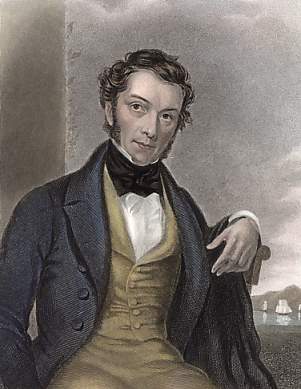Liberty Matters
How Permanent Was Cobden’s Influence?

This conversation on the ideas and strategies of Cobden and the Anti-Corn Law League has perhaps taken an unduly negative turn in asking why no further reforms followed from the repeal of the Corn Laws. This turn has come at the expense of asking what had changed and how permanent the impact of repeal was. Here, as I have argued elsewhere[53], the 1840s debate fundamentally shifted the terms of political argument in Britain, establishing the primacy or hegemony of a popular language of political economy which suffused all levels of society. This remained dominant into the early 20th century, and even, as Davies argues, well into the 1930s and beyond, although “free trade” as such receded from the center of political debate after 1931. Crucial to the success of the language of free trade was the priority it gave to consumers over producers, and this remained its strongpoint into the early 20th century, recruiting support from the newly enfranchised agricultural laborers after 1885, while the emphasis on “cheap food” fitted well into the Edwardian vocabulary of household management and added a new layer of appeal to groups such as the Women’s Co-operative Guild. As the civil servant Edward Hamilton concluded in 1902, “In the days of Protection, producers were more powerful than consumers. Nowadays consumers are more powerful and will remain so.”[54] Ironically, had the land-reform movement succeeded, creating a new class of small agrarian producers, this may have jeopardized support for free trade and helped regenerate a rural protectionist movement. As it was, whatever the movements in real wages, free trade was seen as a vital defense of working-class living standards, and the high degree of male and female literacy in Edwardian Britain saw this message effectively communicated to voters and nonvoters. Free trade had become part of a political consensus, however much Cobden in his day remained an “outsider,” although in fact less one than he has been sometimes presented. (How many outsiders expected The Times to give leaders on their speeches?) This was a fundamental, not a fleeting, change in political life.
This adoption of free trade also reminds us that whatever the complexities of Cobden’s ideas, the central message was, as he repeatedly emphasized, that contained in Smith’s Wealth of Nations: to prevent powerful interests from threatening the welfare of the many.[55] This, however, was a message which after 1867 relied as much on political parties (Liberal and Labor) as on pressure groups, whose heyday had been between 1832 and 1867. Arguably, therefore, after 1867 no more “Cobdens” were necessary, although the Cobden Club guarded zealously his legacy, and periodic challenges to free trade led to supplementary bodies such as the Free Trade Union, linked to the Liberal Party. If we look too at those parties, we find more of the Cobdenite message than previous contributions to this debate have recognized. For example, Cobden’s hostility to empire and liberal internationalism remained deeply entrenched and, I would argue against Davies, did not in Britain succumb to the appeal of romantic nationalism.[56] This contributed a central strand to debates on foreign policy into the interwar period.
With the decline in the effectiveness of political parties in the present day, perhaps there is scope once more for new “Cobdens” and new styles of politics, whether in the blogosphere or through the ever-proliferating world of voluntary associations and NGOs. Here we might add, however, that their power may be more that of a veto than to promote positive change – we should not in this context lose sight of the powerful global protest behind the antiglobalization campaign as seen at Seattle in 1999. However, this also reminds us that it was part of Cobden’s strategy to avoid physical confrontation with the state, drawing the hotter heads of the Anti-Corn Law League back from this in the dangerous crisis of 1842.
Endnotes
[53.] Howe, Anthony, “Popular Political Economy,” in D. Craig and J. Thompson (eds.), Languages of Politics in Nineteenth-century Britain (Basingstoke: Palgrave, 2013).
[54.]Howe, Anthony, Free Trade and Liberal England, 1846-1946 (Oxford: Clarendon Press, 1997).
[55.]See Adam Smith's classic statement in favour of free trade in the Wealth of Nations, Book IV: Of Systems of political Œconomy. Chap. II. "Of Restraints upon the Importation from Foreign Countries of such Goods as can be produced at Home," in Adam Smith, An Inquiry into the Nature and Causes of the Wealth of Nations by Adam Smith, edited with an Introduction, Notes, Marginal Summary and an Enlarged Index by Edwin Cannan (London: Methuen, 1904). Vol. 1. </titles/237#lf0206-01_label_925>. Especially the quote on how “furious monopolists” will fight to the bitter end to keep their privileges </quotes/367>.
[56.] Howe, Anthony, “British Liberal Internationalism in the Nineteenth Century,” Bologna, 29 September 2014, <http://www.bipr.eu/eventprofile.cfm/idevent=6FDD634B-D495-9FD0-3A3574A08251CB06/Anthony-Howe-British-Liberal-Internationalism-in-the-19th-Century&zdyx=1>.
Copyright and Fair Use Statement
“Liberty Matters” is the copyright of Liberty Fund, Inc. This material is put on line to further the educational goals of Liberty Fund, Inc. These essays and responses may be quoted and otherwise used under “fair use” provisions for educational and academic purposes. To reprint these essays in course booklets requires the prior permission of Liberty Fund, Inc. Please contact oll@libertyfund.org if you have any questions.